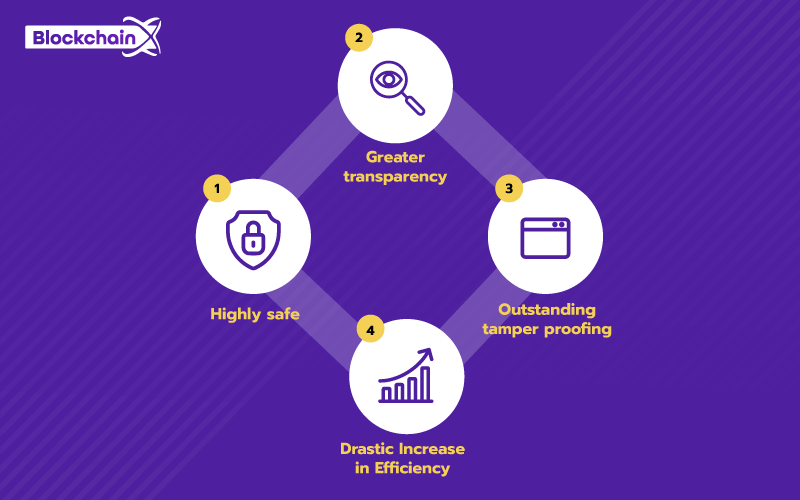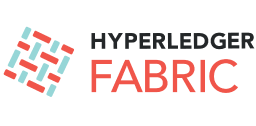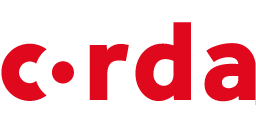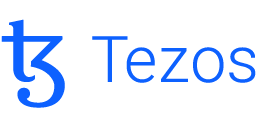The Top Blockchain Platforms to explore in 2023
03 JAN, 2023Almost every industry in the world is being transformed by blockchain technology. In fact, just a few years ago, most people associated blockchain with the finance industry. However, various industries such as healthcare, education, manufacturing, logistics, and so on are increasingly utilizing blockchain in a variety of use cases and the major blockchain platforms are also rising. This technology is well-known for its high levels of security, transparency, performance, and innovation. As a result, the blockchain development market is expected to reach $69 billion by 2030. This astounding growth in blockchain 2023 demonstrates the incredible potential of these innovative technologies for different businesses. Top businesses frequently hire a top blockchain development company to help them choose the best blockchain platform for their project. In this blog, we will discuss the top blockchain platforms in 2023.
What is Blockchain?
Blockchain is a decentralized technology that uses distributed ledgers to store transactions and data. It stores data in the form of blocks and distributes it throughout the network.
Blockchain technology has evolved into a cutting-edge technology that is assisting various industries in storing data with greater transparency and security. It is the ideal solution for keeping track of accounts, transactions, orders, production, payments, and so on. However, many creative businesses are considering blockchain development services to help them innovate their processes, products, and services.
Characteristics of the Blockchain Platform

In comparison to other legacy technologies, blockchain is a relatively new technology. Thus, if you intend to develop your blockchain solution with a platform, it is highly recommended that you hire blockchain developers. These are some of the most critical characteristics of blockchain platforms.
Highly safe
Cybersecurity is a major concern in nearly every industry worldwide. And, because it employs cryptography and has a decentralized structure, blockchain technology contributes to increased security. Above all, this is a very strong method of protecting against cyber criminals and fraud. To achieve such a level of security in your blockchain solution, it is highly recommended that you work with the best blockchain development company.
Greater transparency
Transparency has become an important factor in businesses gaining the trust of their customers. Through the distributed ledger, blockchain enables an application or system to improve its data processing and thus increase transparency. Typically, distributed ledgers are open to the public. It allows transactions after users are verified using pre-defined protocols. As a result, blockchain improves the application's transparency.
Outstanding tamper proofing
As previously stated, tampering with the data or transactions on the blockchain is not possible. Any changes to the blockchain network will be visible to all participants immediately. Thus, no network change will go unnoticed. Many organizations collaborate with a dedicated blockchain development company to incorporate this feature into their solutions.
Drastic Increase in Efficiency
Since blockchain is a decentralized and distributed technology, it improves system efficiency. It has aided companies in increasing the speed and efficiency of their operations, products, and services.
How to Choose the Best Blockchain platforms?

Since blockchain is a complex and advanced-scale technology, its reliability and quality performance are determined by a number of factors. The following are the factors to consider when choosing the top blockchain platforms in 2023:
Speed
The number of transactions that a blockchain platform can handle in a second is determined by its speed. It is known as TPS (transactions per second). The more transactions a platform can handle, the faster it will work.
Functionality
Blockchain development is a broad field. There are differences in the platform's functionality and working process. Each blockchain platform serves a specific purpose, so you must select one based on your requirements.
Security
Blockchain has advanced security features. This is because blockchain is based on distributed and decentralized technology. However, this does not mean you should simply ignore the platform's security standards. Instead, look into the platform's security protocols and features. You should also look at how the blockchain platform verifies the user's identity and ensures complete data privacy and security.
Community support
The number of people who use a platform determines its dependability. The adoption rate of blockchain platforms is increasing as blockchain development technology is used across various industries.
The Number of nodes
Nodes are the basis of blockchain technology. In a blockchain system, it constitutes the entire network. When all nodes in a blockchain system or platform verify all conditions, each node is responsible for verifying data and allowing transactions or data exchange.
The Top Blockchain Platforms
Blockchain platforms have become essential for successful blockchain development. These are some of the most notable blockchain platforms to consider in 2023.
1. Ethereum

Ethereum (ETH) has emerged as a leading blockchain platform for blockchain development. Above all, it has been the dominant platform for creating blockchain apps, decentralized markets, cloud games, wallets, NFTs, and much more. This platform is well-known for its DApp and smart contract support, which ensures effective scalability and smoothness.
The Ethereum Blockchain recently switched from a proof-of-work to a proof-of-stake consensus mechanism. Thus, it has become the preferred option for developers, investors, and NFT traders. With the aid of a blockchain development company, you can also build your blockchain solution on this platform.
Key Features
Developers who use this platform benefit from rapid deployment.
Ethereum now works on a proof-of-work system.
Industry Concentration - Cross-Industry
Consensus Algorithm - Proof of work
Governance - Ethereum Developers
Smart Contract Functionality - Yes
Type of Ledger - Permissionless
2. Hyperledger Fabric

Linux Hyperledger Fabric is a blockchain development platform that is open source. It is a permissioned platform for enterprises. It is relevant for creating high-end blockchain applications. Hyperledger Fabric is built on a modular architecture and includes a variety of plug-and-play components. Since it is a permissioned network, all participants must be verified in order to join this platform. Hyperledger Fabric is even used by top blockchain development companies to build complex and enterprise-scale blockchain solutions.
Key features
Extremely modular and Finality has a low latency.
Smart contract support in multiple languages
Industry concentration - Cross-Industry
Consensus Algorithm - Pluggable Framework
Governance - Linux Foundation
Smart Contract Functionality - Yes
Type of Ledger - Permissioned
3. Ripple

Another well-known blockchain development platform is Ripple. It is founded on blockchain mining, which employs a consensus mechanism to validate transactions. As a result, it assists businesses in lowering their blockchain development costs.
However, many enterprises and large corporations use Ripple to conduct cross-border transactions at a lower cost. Ripple has its own cryptocurrency called XRP, or Ripple. This cryptocurrency is scalable and provides faster transaction speeds than other blockchain platforms. Its TPS speed is around 4-5 seconds, which is great in blockchain 2023.
Key Features
It has a faster transaction speed of 4-5 seconds.
It is very inexpensive to complete a transaction.
Industry concentration - Financial Services
Consensus Algorithm - Probabilistic Voting
Governance - Ripple Labs
Smart Contract Functionality - No
Type of Ledger - Permissioned
4. Corda

Corda is a highly adaptable blockchain development platform that is used to provide a wide range of blockchain development services. It is a blockchain platform with permissions. Its architecture is based on distributed ledger technology that is peer-to-peer.
The best feature that distinguishes Corda as a useful platform is the ability for multiple parties to collaborate within the same blockchain network system and execute all operations securely and efficiently. Participants can create and deploy smart contracts quickly and easily in blockchain 2023.
Key Features
Coda is an excellent resource for open-source blockchain development.
It is extremely secure and keeps data completely safe from external threats.
Industry concentration - Cross-industry
Consensus Algorithm -Asynchronous Byzantine Fault Tolerance
Governance - Hedera Hashgraph Council
Smart Contract Functionality - Yes
Type of Ledger - Permissioned
5. Stellar

Stellar is a distributed blockchain-based ledger that facilitates cross-asset value transfers. Like Ripple, it can handle exchanges between cryptocurrencies and fiat currencies. The Stellar network can be used to create banking tools, smart devices, and mobile wallets.
The Stellar Consensus Protocol (SCP) allows for consensus without relying on a closed system for recording financial transactions. With a set of provable safety properties, SCP prioritizes safety over liveness by halting network progress until a consensus can be reached in the event of misbehaving nodes or partitions.
Key Features
Its database is decentralized and open.
It allows for thousands of transactions per second.
Industry concentration - Financial services
Consensus Algorithm - Stellar Consensus Protocol
Governance - Stellar Development Foundation
Smart Contract Functionality - Yes
Type of Ledger - Both public and private
6. Tezos

Kathleen Breitman and Arthur Breitman, co-founders of Tezos Platform, have been building Tezos with a core team of developers since 2014. Breitman held an ICO in 2016 and raised $612,000 in six months. Tezos is a self-governing, decentralized blockchain platform that establishes a true digital commonwealth. It is a platform that is linked to a digital token known as a Tezzie or Tez. However, the platform is not based on Tez mining. Token holders, on the other hand, are rewarded for participating in the proof-of-stake consensus mechanism.
Key Features
Delegated Proof of Stake Consensus Mechanism
Self-amendment Protocol
Industry concentration - Cross-Industry
Consensus Algorithm - Delegated Proof of Stake
Governance - Dynamic Ledger Solutions
Smart Contract Functionality - Yes
Type of Ledger - Permissionless
7. Hedera Hashgraph

The Hedera Hashgraph platform is a lightning-secure, fast, and fair platform that does not require a complex proof-of-work algorithm to be computed. Hedera empowers and enables developers to create an entirely new class of scalable, decentralized applications.
Smart contracts on the Hedera Hashgraph platform can be made dynamic, just like any other software component.Because it includes an optional mechanism for "binding arbitration," smart contracts deployed with a list of arbitrators public keys can be edited to fix bugs or add new features.
Key Features
Hedera Hashgraph is as fast as your internet connection.
As it is an asynchronous Byzantine fault-tolerant hashgraph, Hedera Hashgraph has the highest level of security.
Industry Focus: Cross-Industry
Consensus Algorithm: Asynchronous Byzantine Fault Tolerance
Governance: Hedera Hashgraph Council
Smart Contract Functionality: Yes
Ledger Type: Permissioned
To Sum up,
As blockchain technology becomes more widely used in various industries, the demand for blockchain development platforms grows. Businesses today seek fast, scalable, and efficient platforms for a variety of use cases. And, based on the growth of blockchain platforms in 2023, the global blockchain market is expected to reach $67.4 billion by 2026. Thus, utilizing these platforms is unquestionably the need of the hour for solving many business needs. However, since a blockchain platform has complex capabilities, you will require expert assistance to fully utilize these platforms.

